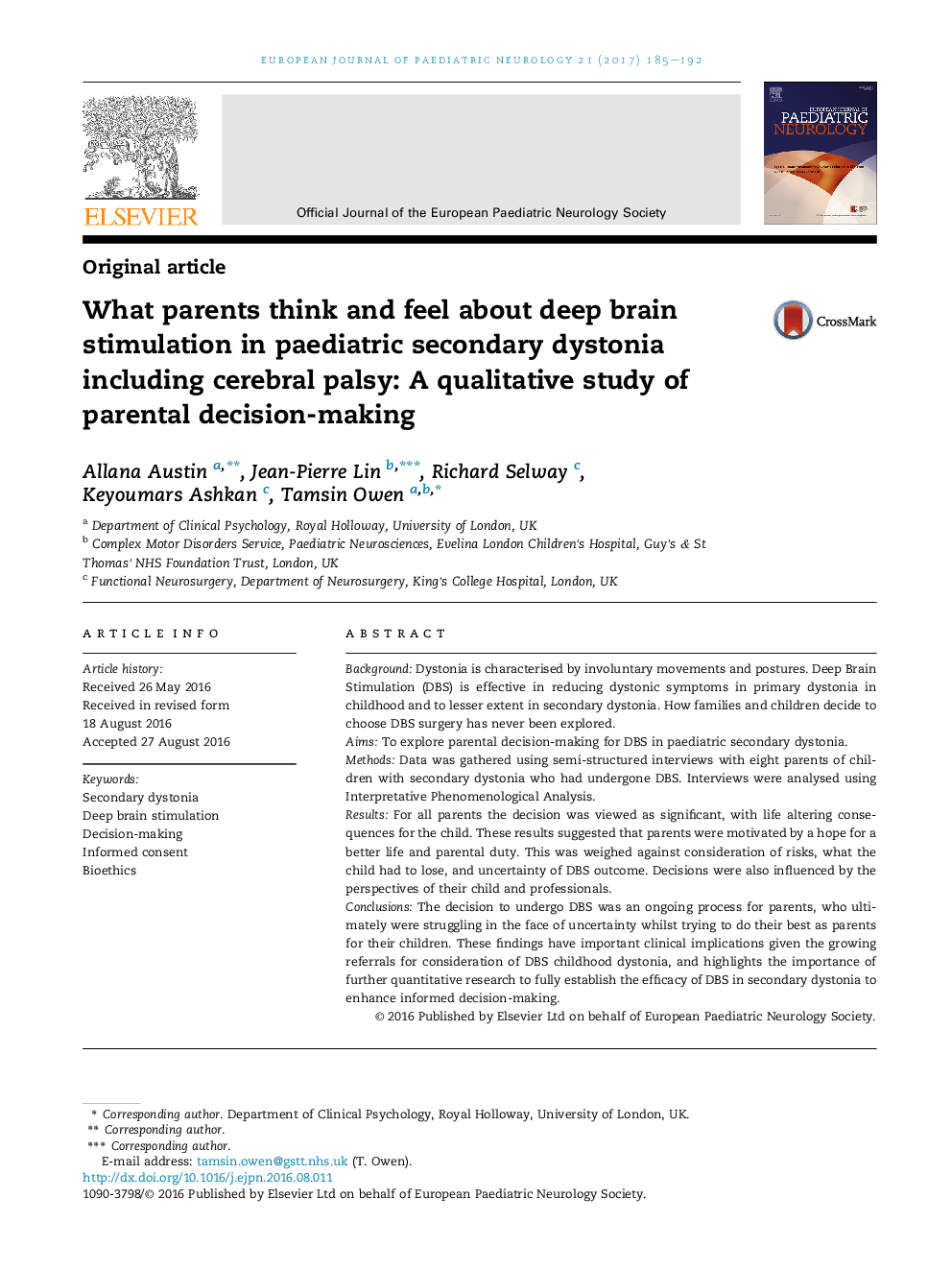| کد مقاله | کد نشریه | سال انتشار | مقاله انگلیسی | نسخه تمام متن |
|---|---|---|---|---|
| 5628929 | 1580002 | 2017 | 8 صفحه PDF | دانلود رایگان |
- This is the first study to explore parental experiences in decision-making for deep brain stimulation children with secondary dystonia illustrated with verbatim interview quotations.
- An over-riding desire to do the best for the child helped families come to terms with potential risks of DBS.
- A lack of a child-specific prognosis for outcome of DBS was outweighed by a desire to avoid regret at failing to make a decision to go forward with DBS.
- Remarkable parental resilience in the face of a life devoted to the care of their dystonic child was a constant feature in all cases.
- Parents respect the opinions of the professionals advising them and there is a need to provide better evidence of efficacy of DBS for this group.
BackgroundDystonia is characterised by involuntary movements and postures. Deep Brain Stimulation (DBS) is effective in reducing dystonic symptoms in primary dystonia in childhood and to lesser extent in secondary dystonia. How families and children decide to choose DBS surgery has never been explored.AimsTo explore parental decision-making for DBS in paediatric secondary dystonia.MethodsData was gathered using semi-structured interviews with eight parents of children with secondary dystonia who had undergone DBS. Interviews were analysed using Interpretative Phenomenological Analysis.ResultsFor all parents the decision was viewed as significant, with life altering consequences for the child. These results suggested that parents were motivated by a hope for a better life and parental duty. This was weighed against consideration of risks, what the child had to lose, and uncertainty of DBS outcome. Decisions were also influenced by the perspectives of their child and professionals.ConclusionsThe decision to undergo DBS was an ongoing process for parents, who ultimately were struggling in the face of uncertainty whilst trying to do their best as parents for their children. These findings have important clinical implications given the growing referrals for consideration of DBS childhood dystonia, and highlights the importance of further quantitative research to fully establish the efficacy of DBS in secondary dystonia to enhance informed decision-making.
Journal: European Journal of Paediatric Neurology - Volume 21, Issue 1, January 2017, Pages 185-192
